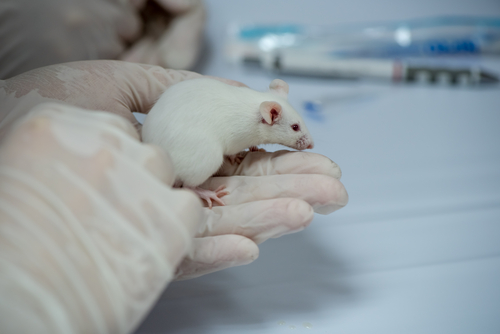Investigational Therapy Jotrol Shows Potential to Treat Mitochondrial Disorders, Mouse Study Suggests

Jotrol, Jupiter Orphan Therapeutics’ lead therapeutic candidate, was found to markedly improve mitochondria production in the liver and brain of mice with Alzheimer’s disease, according to preclinical data.
These recent results further demonstrate the potential of the investigational therapy to modify mitochondria stability and function, without major toxicity effects. In addition, it supports the use of Jotrol not only to treat mitochondrial disorders but also for the management of central nervous system symptoms associated with a broad range of diseases.
“This is a major milestone in JOT’s relatively short history and marks an important value inflection point,” Christer Rosén, CEO of JOT, said in a press release. “We originally did not grasp the unique effectiveness of our Jotrol product in the overall mitochondrial disease market until we received these results.”
Jotrol is an orally administered new formulation of a naturally occurring compound called resveratrol. It was engineered by JOT to overcome some of the limitations of the original product and allow its safe therapeutic use.
Previous studies have shown that, for mitochondria to remain stable and healthy, it is necessary to keep oxygen reactive elements (which promote oxidative stress) under control. Use of compounds that can counteract the effects of oxidative stress — antioxidant agents such as resveratrol — has been explored as an attractive approach.
While resveratrol’s therapeutic potential is widely known, its use is limited due its poor stability in humans and increased toxicity when given at higher doses.
Jotrol is expected to deliver resveratrol in high amounts, sufficient to achieve a therapeutic effect, while reducing the risk of potential side effects.
Researchers recently explored the effects of Jotrol in mice genetically engineered to have Alzheimer’s disease.
After five weeks of treatment with 50mg/kg of Jotrol daily, the mice showed 72% higher levels of mitochondrial DNA in the liver and 30% higher levels in the brain, compared with untreated mice. While the activity of mitochondrial-specific genes such as Nd1 and Rnr1 were increased, other non-mitochondrial genes such as NEB remained unchanged.
Together with data from previous studies, these results show that high doses of resveratrol can have direct effects on mitochondria structure and stability, potentially increasing cell’s mitochondrial machinery effectiveness.
“I am not aware of any other safe drug candidates that induce robust mitochondrial biogenesis, let alone in the brain,” said Claes Wahlestedt, MD, PhD, chief medical officer of JOT. “Another big plus is that Jotrol will be an oral medication, which patients prefer, so no infusions or injections.”
Jotrol has also received orphan drug status from the U.S. Food and Drug Administration for the treatment of Friedreich’s ataxia.
JOT announced on its website that it is planning to start clinical trials during 2018 to explore Jotrol’s potential as a treatment for mucopolysaccharidosis Type I, Friedreich’s ataxia, and MELAS syndrome.
“Increased mitochondrial biogenesis is a promising approach to treating some forms of mitochondrial diseases,” said Philip Yeske, science and alliance officer for the United Mitochondrial Disease Foundation. “The mitochondrial disease community looks forward to further therapeutic development efforts by JOT in follow-up to the preliminary pre-clinical work reported on mice.”






